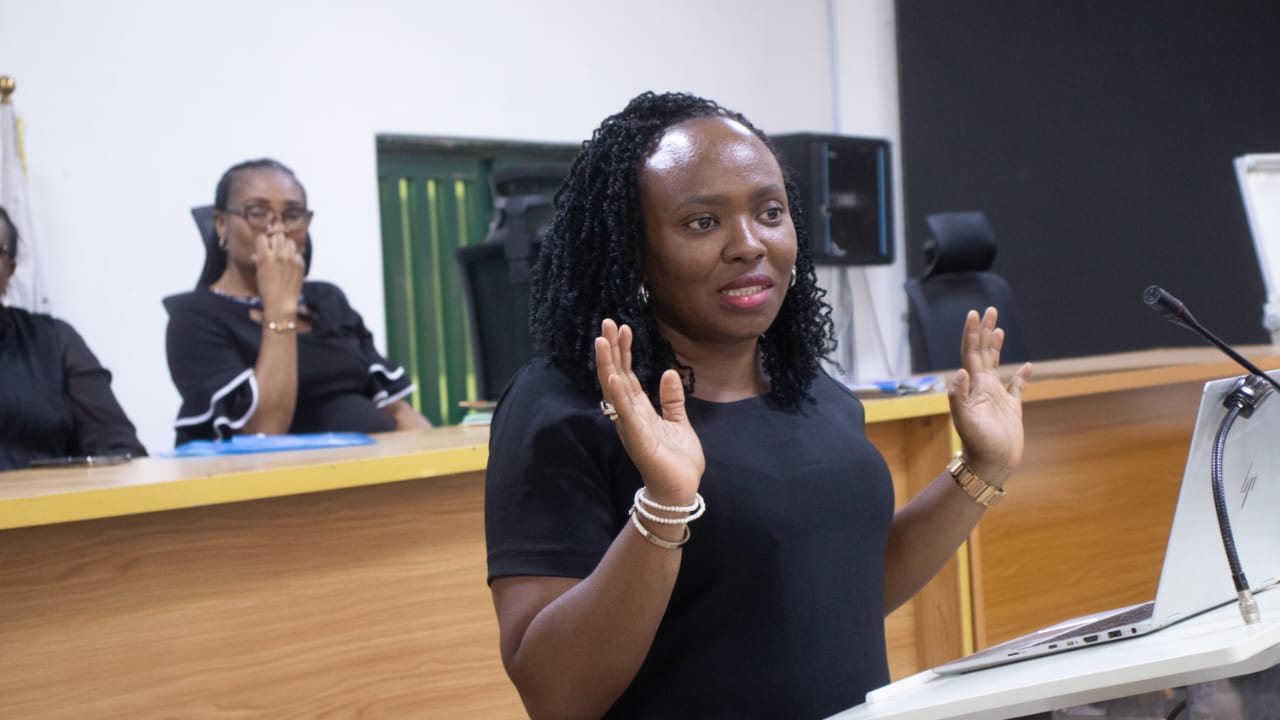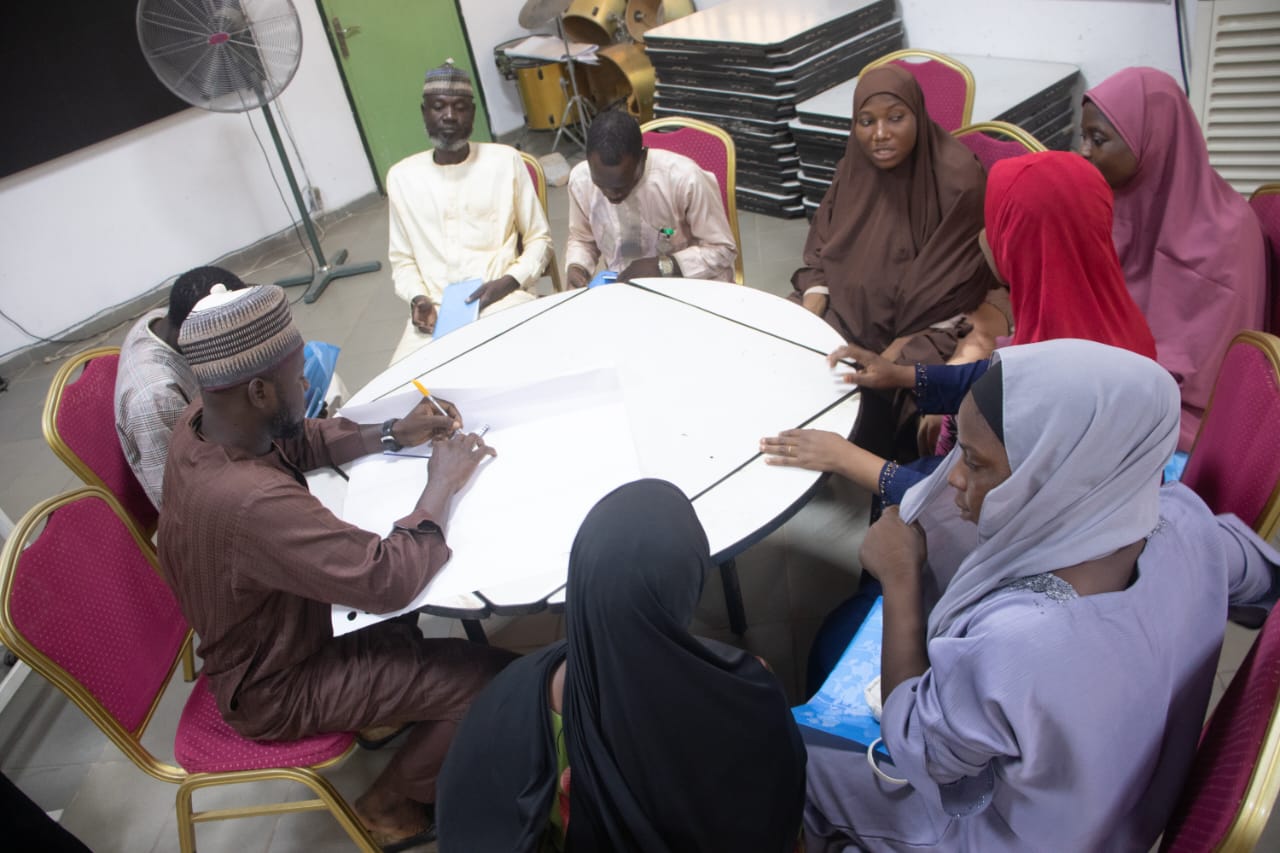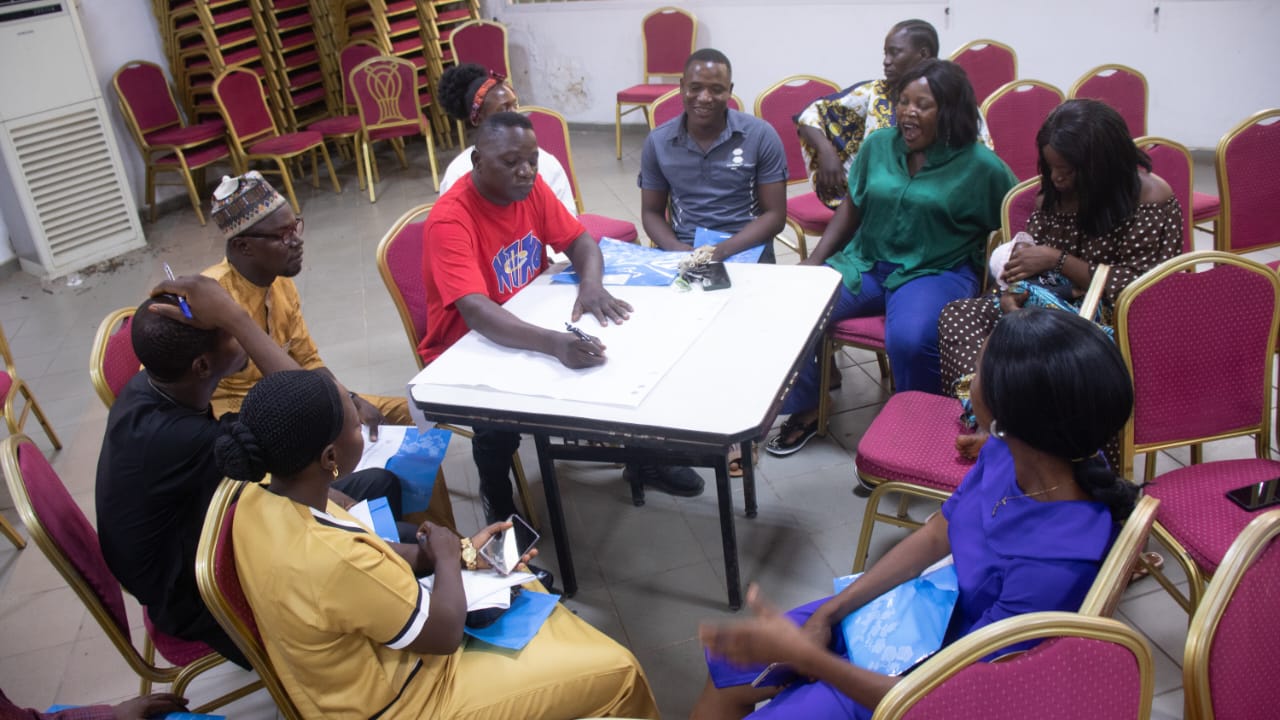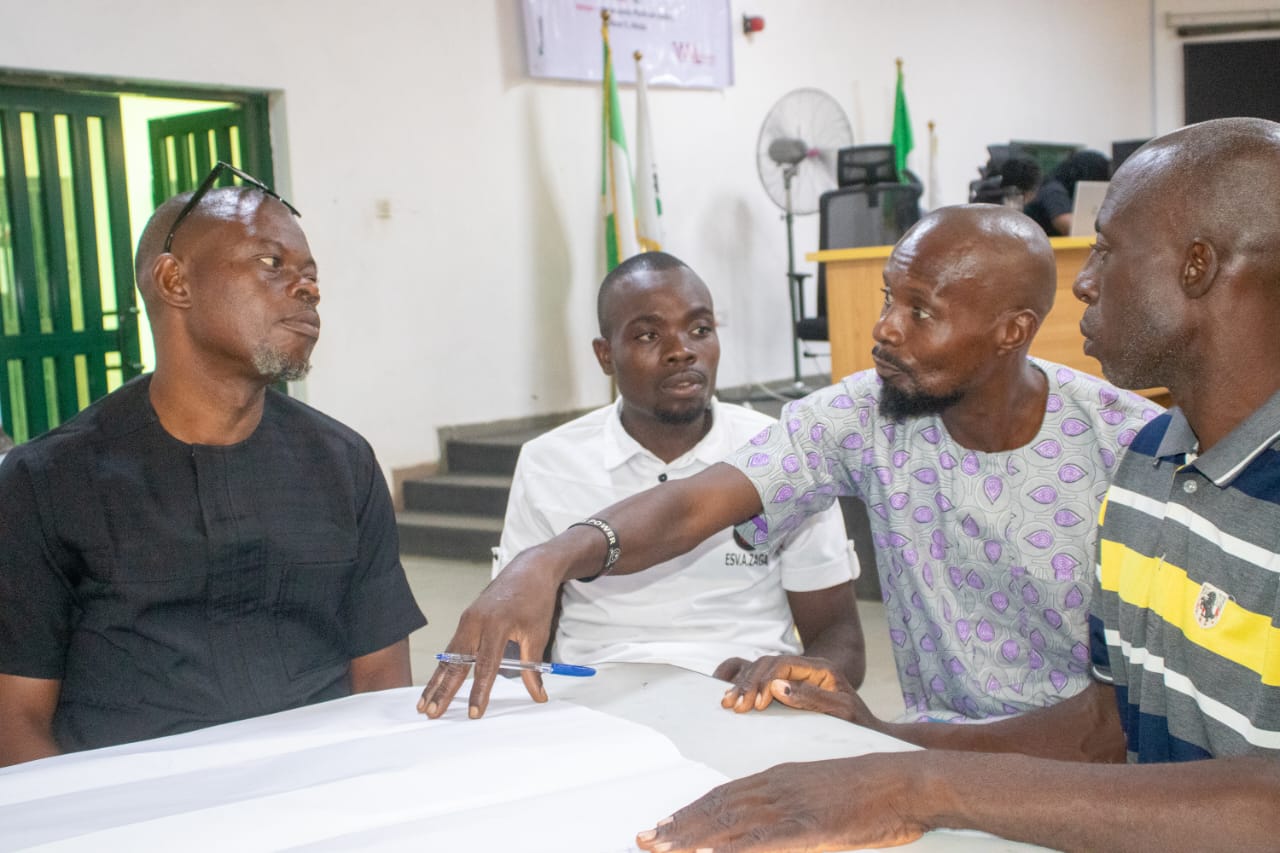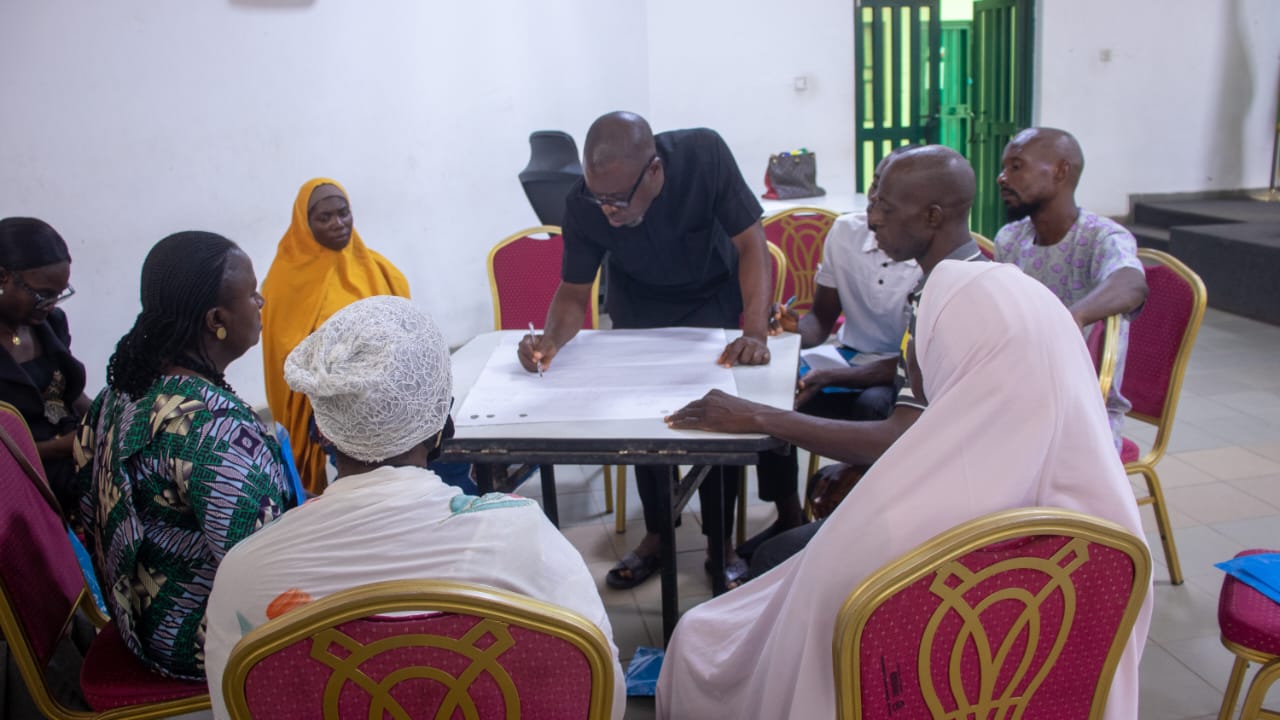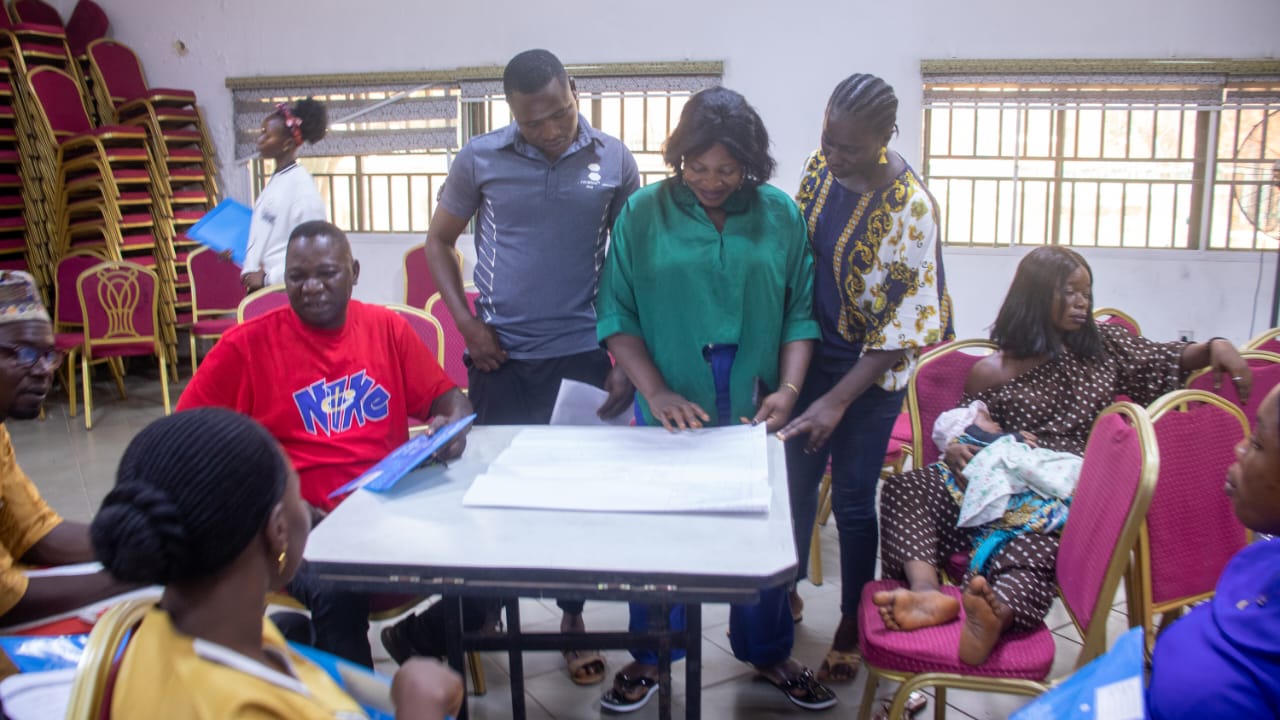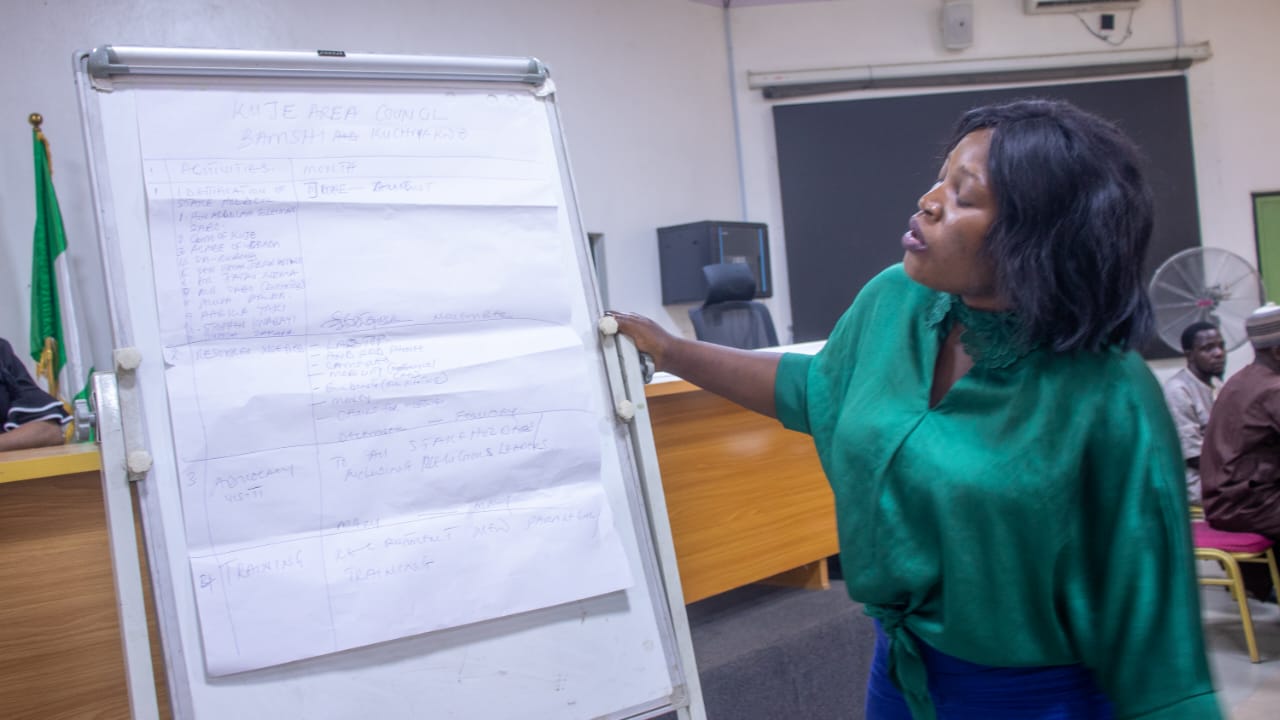
FIDA Nigeria Celebrates Success at ActionAid’s WVL-N Project Close-Out Event
FIDA Nigeria, along with seven other local women’s rights organizations, marked a significant milestone at the close-out event of ActionAid’s Women’s Voice and Leadership Nigeria (WVL-N) project, sponsored by Global Affairs Canada (GAC). This impactful project was implemented over five years across Nigeria.
The WVL-N project made substantial strides in addressing gender-based violence against women and girls, promoting women’s economic justice and empowerment, enhancing women’s political participation and leadership, and supporting various other empowerment programs.
FIDA Nigeria proudly received awards for having the Most Efficient Finance Officer and Most Responsive Project Officer during the project’s lifecycle.
We extend our heartfelt congratulations to GAC, ActionAid Nigeria, and our fellow partner grantees for an incredible five years. Here’s to achieving even more together!
#NigerianWomenMatter #GenderEquality #GBV #FIDA #ActionAid #GlobalAffairsCanada #WVLN







FIDA Nigeria Hosts National Workshop on Learning Dissemination
On July 4th, FIDA Nigeria hosted a transformative “National Learning Dissemination Workshop” aimed at strengthening collaboration among criminal justice actors for the sustainable implementation of the Administration of Criminal Justice Act (ACJA) and Administration of Criminal Justice Laws (ACJLs) in Nigeria. This event was supported by the MacArthur Foundation.
The workshop served as a platform to share key learnings and insights from the implementation of the intervention, based on an impact assessment conducted across six focal states: Anambra, Bayelsa, Ekiti, FCT, Kano, and Rivers. The focus was on our capacity-building initiative to enhance relationships and foster collaboration among criminal justice actors, formulate actionable strategies to improve the implementation of the ACJA/ACJLs, and brainstorm practical solutions.
Participants contributed invaluable experiences and insights, significantly advancing the effective implementation of the ACJA/ACJLs in Nigeria.
We extend our heartfelt thanks to all participants, the MacArthur Criminal Justice Cohort, and the MacArthur Foundation for their support in advancing justice in Nigeria.
FIDA #MacArthurFoundation #CriminalJusticeReform #ACJA #ACJLs #Collaboration #Nigeria #JusticeForAll







FIDA Nigeria’s 2nd Quarter NEC Meeting Kicks Off with a Grand Opening Ceremony
Opening ceremony of the FIDA Nigeria 2nd Quarter National Executive Council Meeting (NEC) held at the Meena Event centre Kano state on the 27th of June 2024, and set the tone for a memorable NEC meeting.
The ceremony was well attended with notable dignitaries which included the noble Chief Judge of Kano State, Hon Justice Dije Aboki, the Attorney-General/Commissioner of Justice ably represented by Hussaini Hassan the DCR; Commissioner for Women Affairs, Children and the Disabled, Hajiya Aisha Lawal Sajiranu; SSA to the Governor on Special Assignment to Women, Hajiya Fateema Amneef; Controller General, Nigeria Correctional Service, ably represented by SCS Nana Fatima Mohammed; Chairman NBA Kano State Branch Mr Sagir Gezawa, Chairman NBA Mr Mohammed Jibrin; Chairman NBA Ungogo Branch, State Coordinator ROLAC & International Idea, Alhaji Ibrahim Bello; State Coordinator Neem Foundation, Alhaji Abba Bello; Coordinator for Policy Advocacy in Kano state, Hajiya Maro Bello; Research Fellow National Judicial Institute, Gender and Child Justice Administration & UNICEF Consultant, Comfort Olubo Umaru; Chairperson Planning Committee of the 2024 NBA Annual General Conference, Oyinkan Bajejo Okunsanya; distinguished members of the National Executive Council; delegates and other notable personalities.
Chairperson of the host Branch, FIDA (Nigeria) Kano state, Bilkisu Ibrahim Suleiman set the tone with a warm welcome speech while the Country Vice President/National President of FIDA Nigeria, Amina Suzanah Agbaje gave her opening remarks followed by remarks from the Chief Judge of Kano state, Hon. Justice Dije Aboki, who doubled as the Chair of the opening ceremony and who officially declared the program open.
Thereafter, a paper presentation by UNICEF Consultant and Research Fellow National Judicial Institute, Comfort Ulobo Umaru on ”Justice for Children: The Role of Diversion and Rehabilitation for Children in Conflict with the Law” followed immediately. Her presentation focused on SGBV and conflict-related sexual violence against children in the context of terrorism. The session ended with an engaging Q&A session with delegates making it a truly educative voyage.
Continuing Legal Education (CLE) session which is a hallmark of every FIDA Nigeria National Executive Council (NEC) meeting held in the afternoon of the 27th of June 2024. It was a platform where delegates were further trained on evolving and emerging areas of law as pertain to global best practices. Papers were presented on ”Effective Communication Skills, Best Practices for the Fidan” by Hon. Justice Amina Adamu Aliyu of the High Court of Kano state and ”Legal clinic and case management, Best Practices for the Fidan” by Hon. Justice Maryam Sabo Mni, ably represented by Chair emerita of FIDA Abuja Branch, Rachael Rekia Adejo Andrew.
Stay tuned for more updates and join us in celebrating the impactful work that FIDA Nigeria is doing to expand access to justice for indigent women and children.












FIDANigeria #2ndQuarterNECMeeting
openingceremony #CLE
LegalEducation
accesstojustice
JusticeForChildren

Opening ceremony of the FIDA Nigeria 2nd Quarter National Executive Council Meeting (NEC) held at the Meena Event centre Kano state on the 27th of June 2024, and set the tone for a memorable NEC meeting.
s
The ceremony was well attended with notable dignitaries which included the noble Chief Judge of Kano State, Hon Justice Dije Aboki, the Attorney-General/Commissioner of Justice ably represented by Hussaini Hassan the DCR; Commissioner for Women Affairs, Children and the Disabled, Hajiya Aisha Lawal Sajiranu; SSA to the Governor on Special Assignment to Women, Hajiya Fateema Amneef; Controller General, Nigeria Correctional Service, ably represented by SCS Nana Fatima Mohammed; Chairman NBA Kano State Branch Mr Sagir Gezawa, Chairman NBA Mr Mohammed Jibrin; Chairman NBA Ungogo Branch, State Coordinator ROLAC & International Idea, Alhaji Ibrahim Bello; State Coordinator Neem Foundation, Alhaji Abba Bello; Coordinator for Policy Advocacy in Kano state, Hajiya Maro Bello; Research Fellow National Judicial Institute, Gender and Child Justice Administration & UNICEF Consultant, Comfort Olubo Umaru; Chairperson Planning Committee of the 2024 NBA Annual General Conference, Oyinkan Bajejo Okunsanya; distinguished members of the National Executive Council; delegates and other notable personalities.
Chairperson of the host Branch, FIDA (Nigeria) Kano state, Bilkisu Ibrahim Suleiman set the tone with a warm welcome speech while the Country Vice President/National President of FIDA Nigeria, Amina Suzanah Agbaje gave her opening remarks followed by remarks from the Chief Judge of Kano state, Hon. Justice Dije Aboki, who doubled as the Chair of the opening ceremony and who officially declared the program open.
Thereafter, a paper presentation by UNICEF Consultant and Research Fellow National Judicial Institute, Comfort Ulobo Umaru on ”Justice for Children: The Role of Diversion and Rehabilitation for Children in Conflict with the Law” followed immediately. Her presentation focused on SGBV and conflict-related sexual violence against children in the context of terrorism. The session ended with an engaging Q&A session with delegates making it a truly educative voyage.
Continuing Legal Education (CLE) session which is a hallmark of every FIDA Nigeria National Executive Council (NEC) meeting held in the afternoon of the 27th of June 2024. It was a platform where delegates were further trained on evolving and emerging areas of law as pertain to global best practices. Papers were presented on ”Effective Communication Skills, Best Practices for the Fidan” by Hon. Justice Amina Adamu Aliyu of the High Court of Kano state and ”Legal clinic and case management, Best Practices for the Fidan” by Hon. Justice Maryam Sabo Mni, ably represented by Chair emerita of FIDA Abuja Branch, Rachael Rekia Adejo Andrew.
Stay tuned for more updates and join us in celebrating the impactful work that FIDA Nigeria is doing to expand access to justice for indigent women and children.
Kindly click on the link 🔗 for more photos
https://photos.app.goo.gl/kM4b1axfyRjk16RKA
FIDANigeria #2ndQuarterNECMeeting
openingceremony #CLE
LegalEducation
accesstojustice
JusticeForChildren

FIDA Nigeria Kicks Off 2nd Quarter NEC Meeting with Welcome Cocktail: An Evening of Bonding and Conviviality
To unwind from the stress of travel and also connect with fellow delegates, the host branch for the NEC meeting, FIDA (Nigeria) Kano State Branch, hosted a welcome cocktail for delegates in the evening of the 26th of June. It was an evening of fun, relaxation, catching up, sharing of experiences and an opportunity to further strengthen bonds under an atmosphere of general conviviality. Laughter and profound conversations set the mood for the evening, and by extension the tone for the 2nd Quarter National Executive Council (NEC) meeting.
FIDANigeria
20242ndquarterNECmeeting
welcomecocktail
accesstojusticeforindigentwomenandchildren










FIDA Nigeria’s 2nd Quarter NEC Meeting 2024: Advocating for Justice and Humanitarian Aid in Kano State
The 2nd Quarter FIDA Nigeria National Executive Council (NEC) meeting 2024, held from the 26th of June to the 29th of June 2024 in Kano State, centred around the theme: Ensuring Access to Justice for Indigent Women and Children in Nigeria the 2nd Quarter NEC meeting was hosted by FIDA (Nigeria) Kano State Branch.
Scheduled activities began the morning of Wednesday, 26th of June 2024 with advocacy outreaches by FIDA Nigeria in its well known tradition of impacting the lives of the indigent by a visit to two significant locations:
- Nassarawa Children’s Home (Orphanage), Nasarawa GRA Kano state
This outreach to the children’s home was led by the Country Vice/National President of FIDA Nigeria, Amina Suzanah Agbaje, National Executive Committee Members and a number of distinguished delegates. The delegation was warmly received by the custodians of the home, Aminu Sabiu Bebeji, and Maimuna Hamisu Tahir. The children’s home had a total of 96 children, with about 32 children present during the visit as it was a school day. FIDA made its presentation to the home together with donations of food and other items. - Torrey Home for children with special needs
The FIDA Nigeria delegation to the Torrey home was received by Hajia Farida Idris Usman and her staff. Torrey Home houses a total of 42 children with special needs. During the visit, items such as foodstuff and sanitary wares were presented, emphasising FIDA’s commitment to providing humanitarian and legal aid.
Both outreaches were an integral and consistent part of all FIDA’s NEC meetings, bringing joy and support to the vulnerable and less privileged, while demonstrating FIDA Nigeria’s unwavering dedication to making a meaningful impact in the lives of those who need it the most.
FIDANigeria #NECMeeting









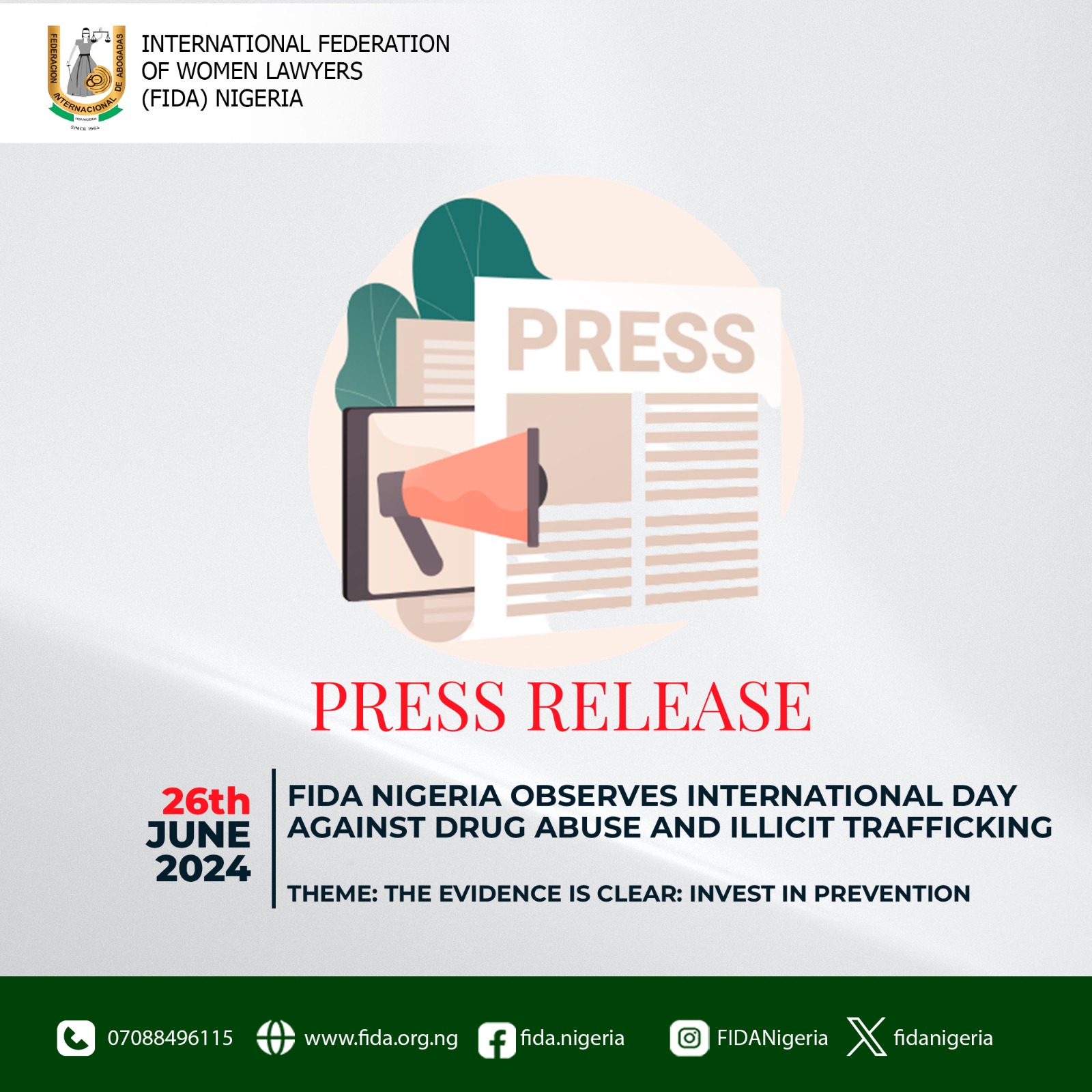
FIDA Nigeria Observes International Day Against Drug Abuse and Illicit Trafficking
Theme: The evidence is clear: invest in prevention
Today, FIDA Nigeria unites with the global community to recognise the International Day Against Drug Abuse and Illicit Trafficking commemorated on the 26th of June annually. This year’s theme, “The evidence is clear: invest in prevention,” resonates deeply with our mission to foster a healthier and more just society in Nigeria while raising awareness of the diverse problems that the use of illicit drugs and substances pose to any society.
Our commitment at FIDA Nigeria in combating this menace is rooted in a community-focused approach, as can be seen from our concerted advocacy and outreaches including various initiatives, such as the Youth Advocacy Program and Women Empowerment Workshops, aimed at educating and empowering vulnerable groups, particularly women and youth, to resist the lure of drugs, discourage the usage of illicit substances and encourage their engagement in positive, productive activities.
FIDA Nigeria’s continuous collaboration with schools, religious institutions and community leaders is geared towards implementing evidence-based prevention programs, some of which include:
- Educational Campaigns: Providing schools with curriculum support and training teachers to deliver effective drug education.
- Community Outreaches and Advocacy: Organizing workshops and seminars in rural and urban areas to raise awareness about the dangers of drug abuse and illicit trafficking.
- Healthcare Access: Partnering with healthcare providers to ensure that individuals struggling with substance abuse have access to comprehensive treatment and support services.
As trailblazers in advocacy, we have adopted a holistic approach to create awareness and address not only the immediate dangers of drug abuse but also the socio-economic factors that contribute to it, We believe that by empowering individuals with knowledge, skills, and support, we can create a ripple effect that strengthens entire communities and the society at large.
We therefore call on Government, policymakers, change drivers, public and private sector, stakeholders, community leaders, and every citizen to support and invest in these preventive measures. By so doing, we can build a resilient society where every individual has the opportunity to thrive, completely free from the dangers of drug abuse and illicit trafficking.
As we commemorate this important day today, let us commit firmly to taking concrete and visible actions that will pave the way for a future free from the scourge of drug abuse and illicit trafficking. Together, we can make a lasting impact and collectively strengthen our actions for a society free of drug abuse!
Signed
Amina Suzanah Agbaje (Mrs.)
Country Vice/National President
FIDA Nigeria
worlddrugday #stopdrugabuse #theevidenceisclear #investinprotection
26june
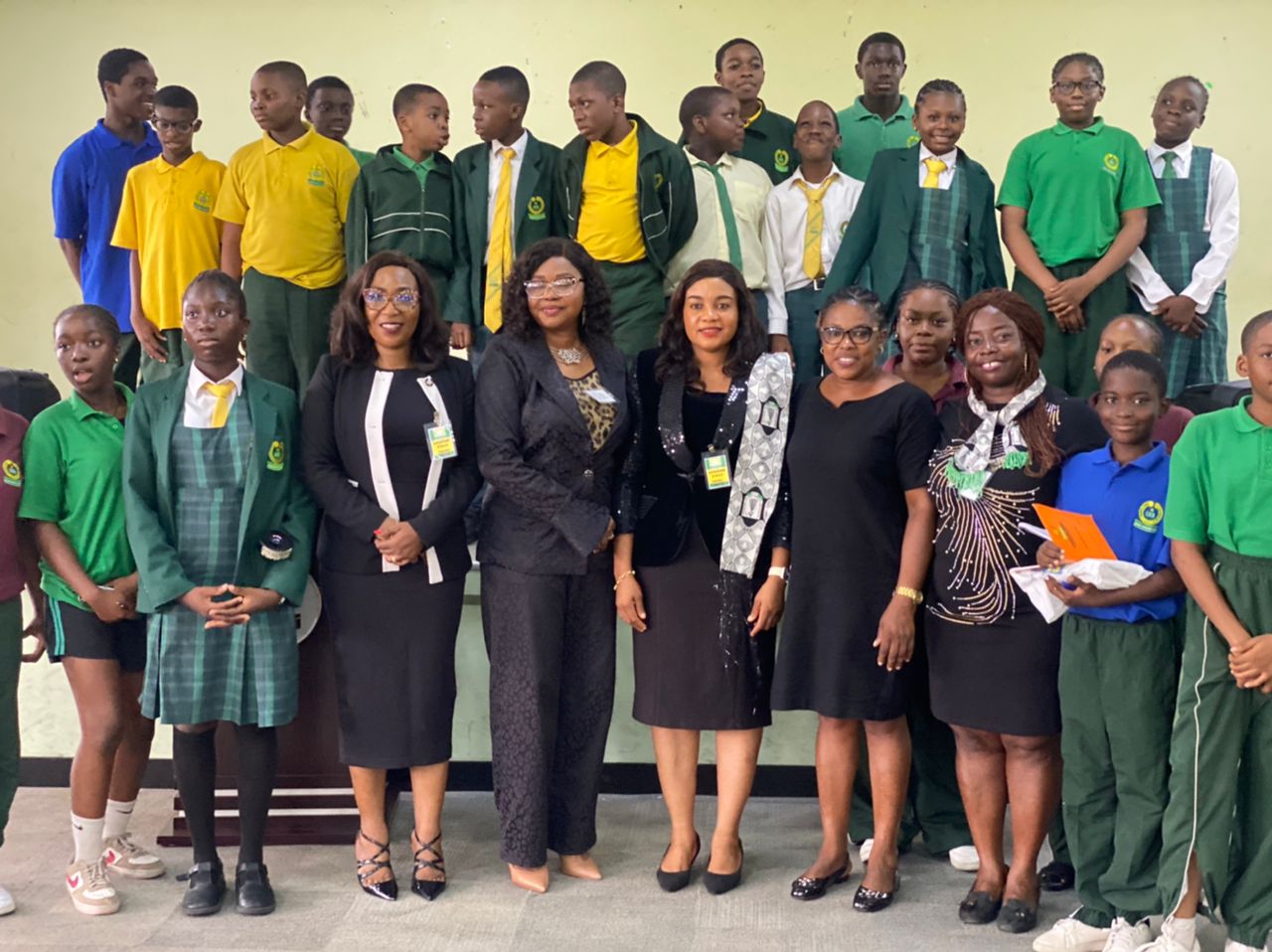
FIDA Nigeria Epe commemorated Children’s Day with Child Advocacy Outreach to two campuses of Chrisland School, Lekki and VGC.
FIDA Nigeria Epe commemorated Children’s Day with Child Advocacy Outreach to two campuses of Chrisland School, Lekki and VGC.
The Lekki team ably led by our Chairperson, Olufunke Oduwole spoke to the children on the Girl and Boy Child as role models. Bullying , Drug Addiction and Child in a digital world were extensively discussed by the delegation made up of Uchenna Ogwo (GS), Amaka Aneke (Treasurer) , Genevin Kris-Njoku(Welfare), Omolara Elsie Jinadu and Ibrokam Akai. There was role play, question and answer session and presentation of gifts.
Simultaneously in the VGC campus, the team ably led by our Vice chairperson Sotonye Amachree discussed the same topics. Ogechi Olisa-Mokelu (PRO) , Cynthia Igwebuike (AGS) , Abiye Tam-George , Ebinimi Afrogha were all in attendance . It was an interactive session with question and answer session and presentation of gifts.
The school management thanked FIDA Nigeria Epe for celebrating their children and assured us that all that was taught would be put into practice.
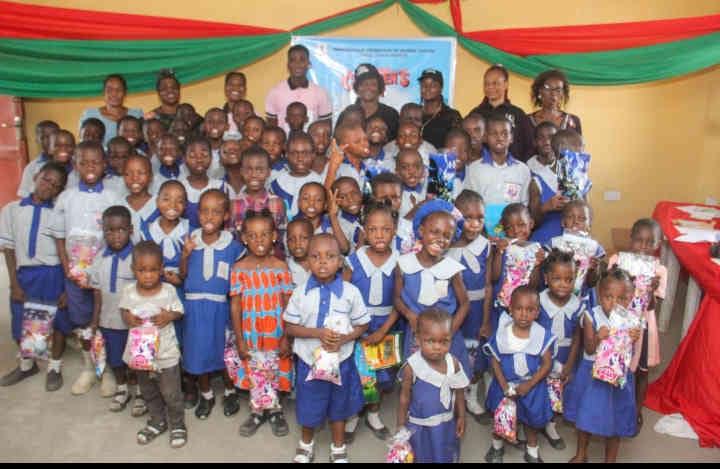
Children’s Day 2024 Celebration at Onayade Primary School
We celebrated Children’s Day 2024 with the exceptional pupils of Onayade Primary School. This special event was led by the dedicated Mrs. Nnenna Nwokobia, head of the project committee, and supported by representatives from our esteemed collaborative partners at IDR Memorial Foundation.
Our inspirational champion, Fidan Ngozi Arinze, conducted an enlightening sensitization session, empowering the children with knowledge about their rights as enshrined in the Constitution and the Child Rights Act.
Together, we are building a brighter future for these incredible young minds.
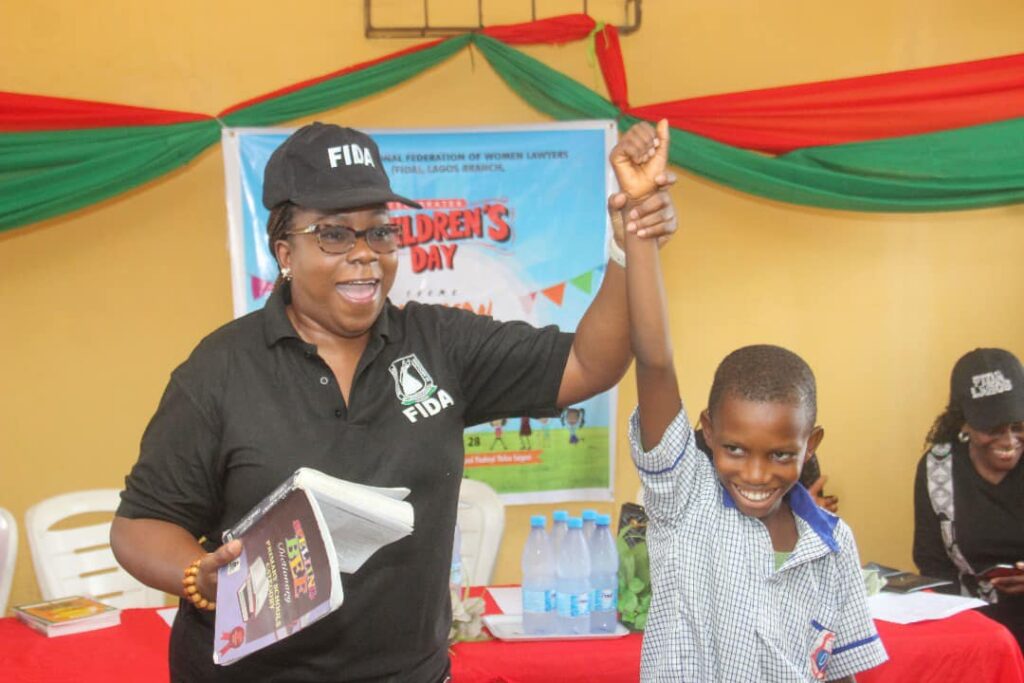
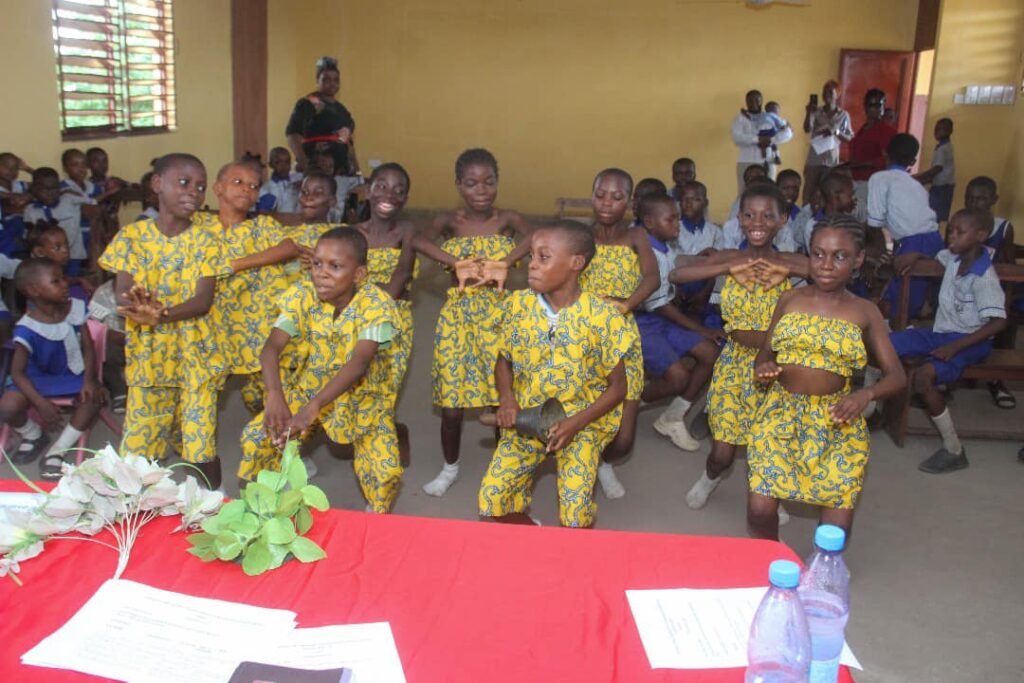
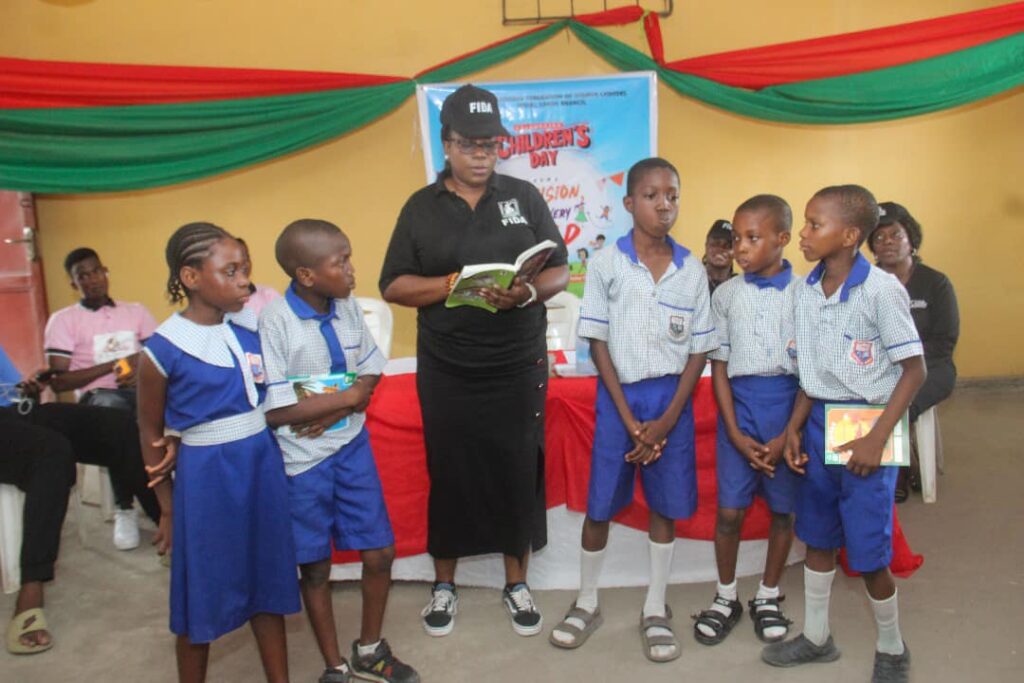
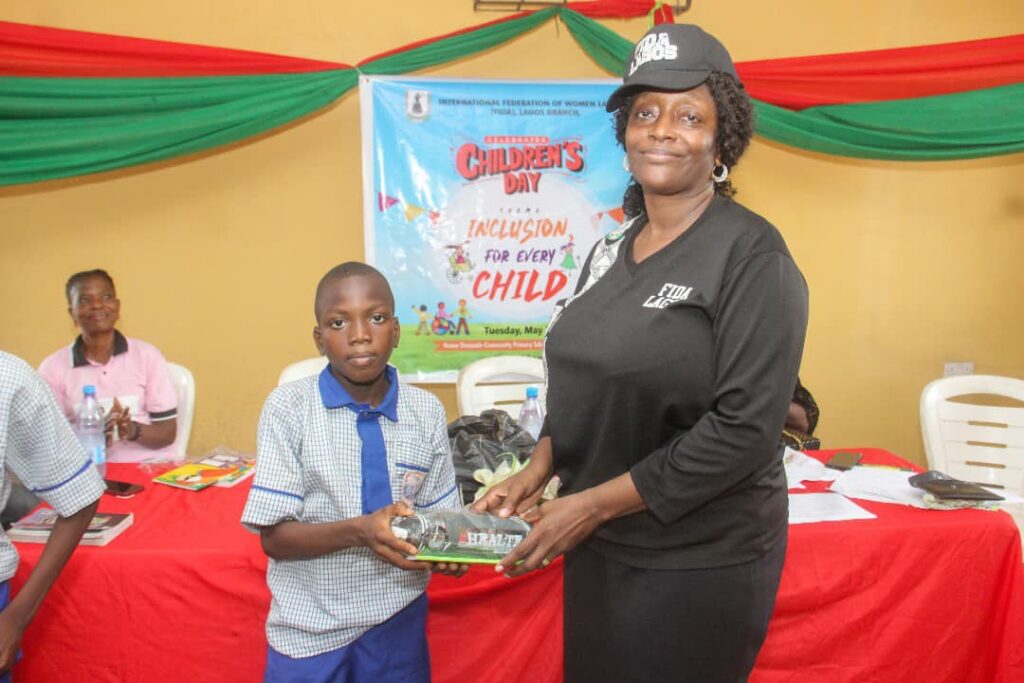
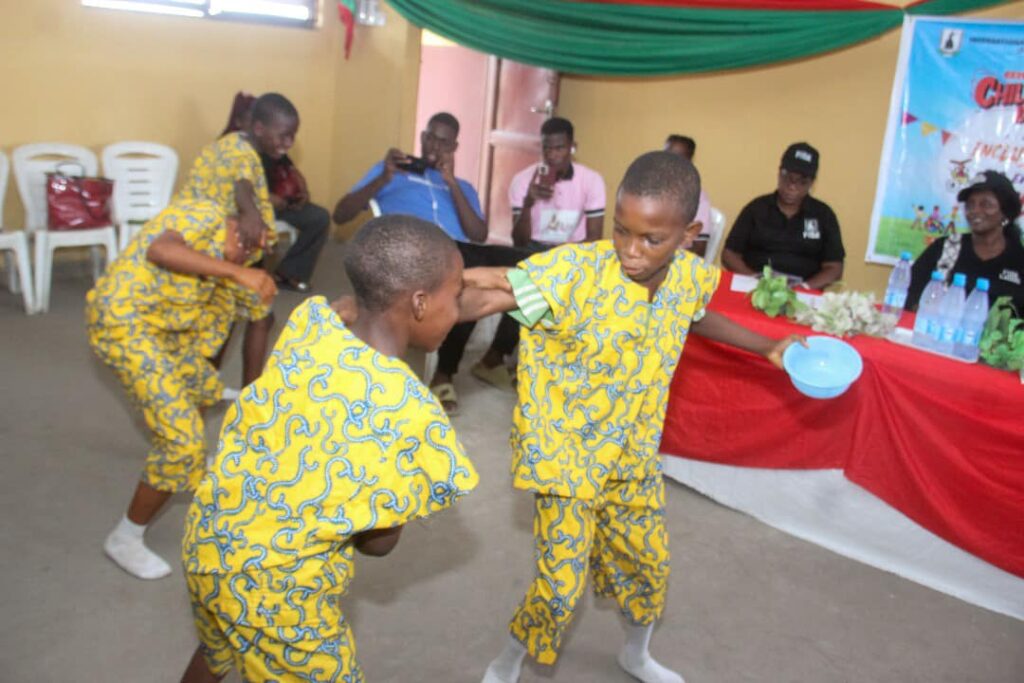

4o
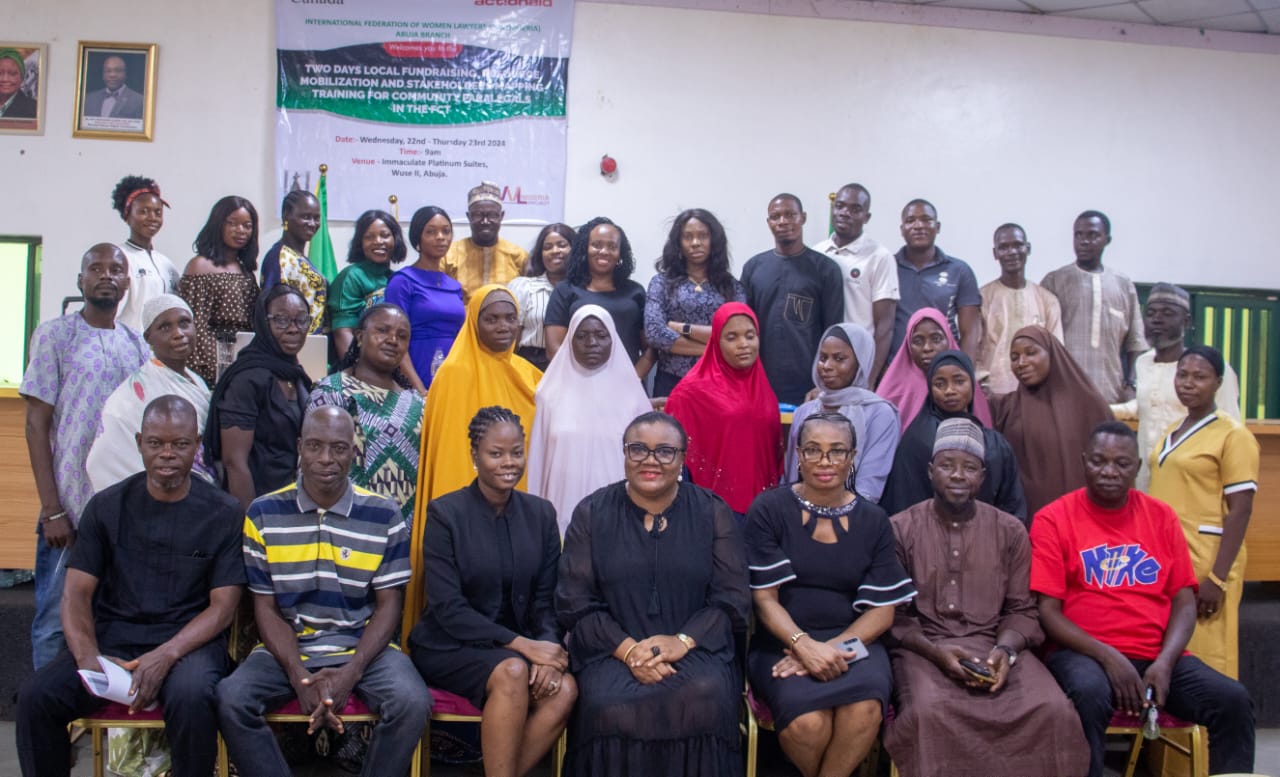
FIDA Nigeria Empowers Paralegals in FCT with Essential Training Supported by ActionAid Nigeria
FIDA Nigeria, in collaboration with ActionAid Nigeria through the Women Voice and Leadership initiative, recently conducted a comprehensive two-day training for Paralegals hailing from Kuje, AMAC, and Bwari Area Councils in the Federal Capital Territory. The intensive sessions centered around Local Fundraising/Resource Mobilization and Stakeholder Mapping, equipping participants with crucial skills for sustainable community impact.
Throughout the training, attendees delved into the intricacies of fundraising, resource acquisition strategies, and the art of building strong relationships with stakeholders. The aim? To fortify the operations of paralegal clinics within their respective communities, ensuring greater efficacy and longevity.
FidaNigeria #NigerianWomenMatter #GlobalAffairsCanada #ActionAidNigeria #WomenLeadership #ParalegalTraining
